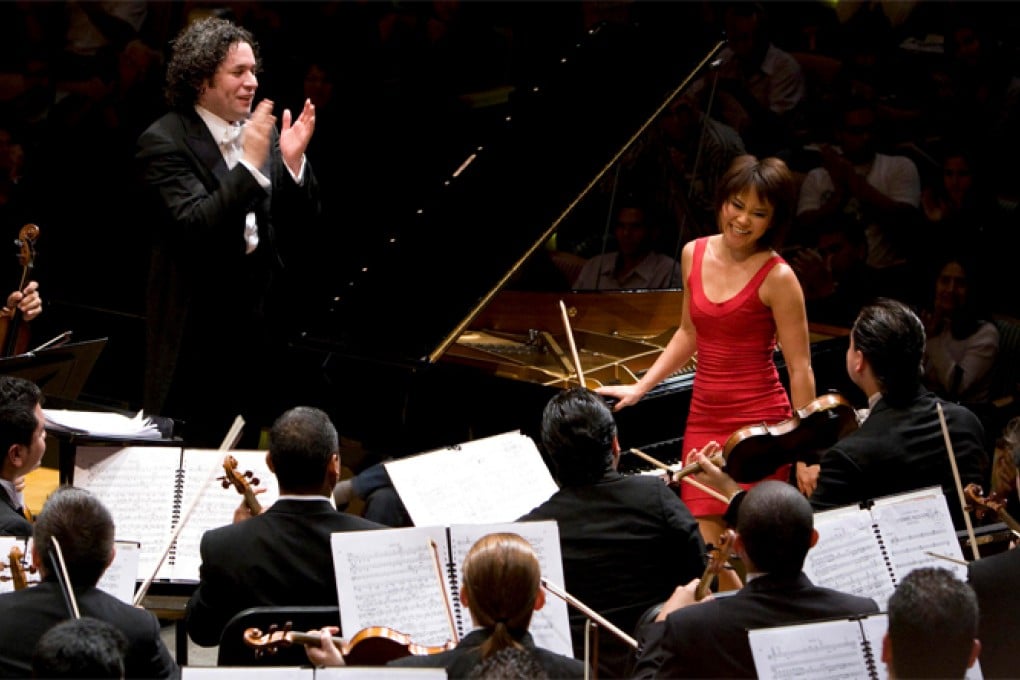When nerves and familiarity combine, expect pianist Yuja Wang to create magic
Ignore the wardrobe, Yuja Wang’s passion lies in grappling with muscular music and hoping that stage fright strikes, writes Victoria Finlay

IF YOU WERE TO WRITE A profile of 27-year-old mainland pianist Yuja Wang these, in a nutshell, are the five points you might include: she is brilliant; she grew up in Beijing; she wears short dresses; ignore the previous point, it’s all about the playing; and did I mention she wears very short dresses?
“That’s a very good summary,” she says with a giggle when I try it out on her. Since appearing in a short orange dress to perform at the Hollywood Bowl in August 2011, Wang has won as many reviews of her skimpy clothes as she has of her performances.
“It’s easy to write that way,” she says. “It’s actually probably how people can write about me, because that’s how it looks. They always want a story and that’s the story – short skirt.
“I think it’s amusing, and the thing is, you can only ever see the tip of the iceberg in an interview. An artist’s life is always more multilayered and complicated.” Wang claims the Hollywood Bowl concert and its fallout were fun. “The conductor [Lionel Bringuier] was one of my friends and I thought, ‘Oh, it’s Hollywood and nobody will care’.”
Her performance of Rachmaninoff’s Piano Concerto No 3 in D minor – was also pretty hot-blooded. “I found it [the dress] fitting to the mood of the piece, but people made a big deal.”
The thing about Wang is – we’ve skipped straight to item four, if you are following the five-point story outline – ignore the dresses, the playing is the point. And she plays exceptionally well. Her career trajectory has been exciting. In 2009, Gramophone named her Young Artist of the Year. Soon after, she was given Young Artist of the Year at Germany’s Echo Klassik awards.